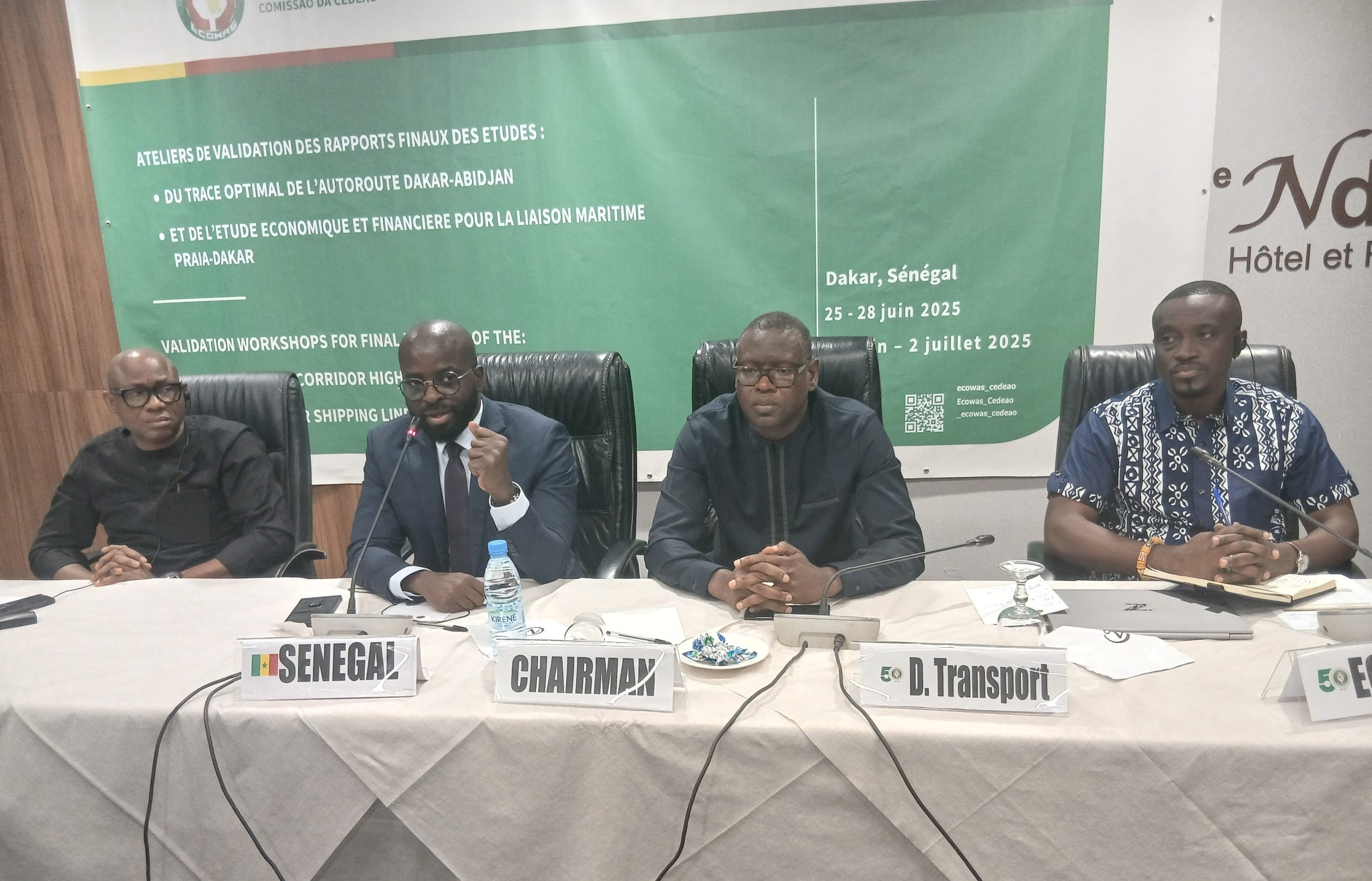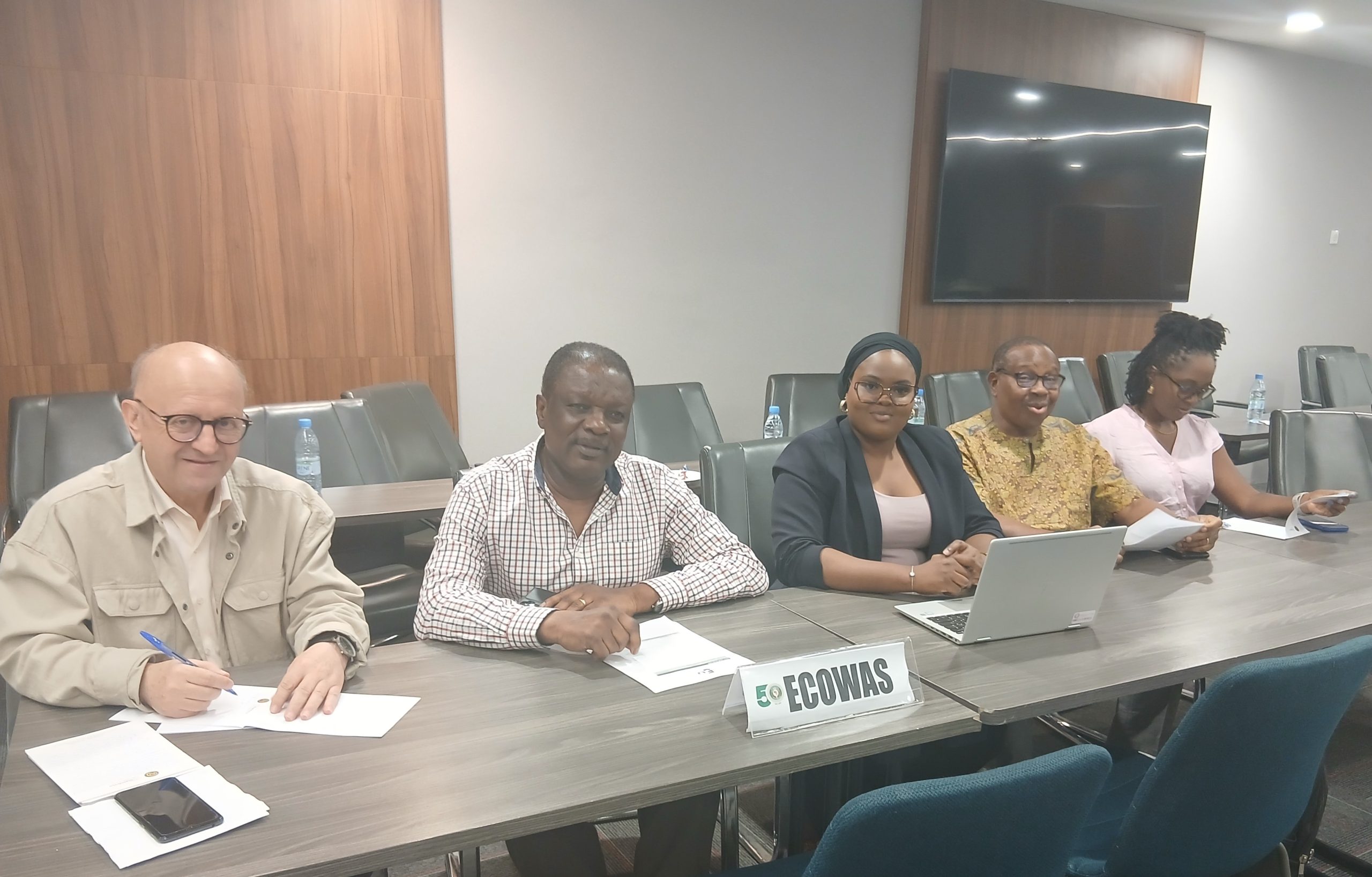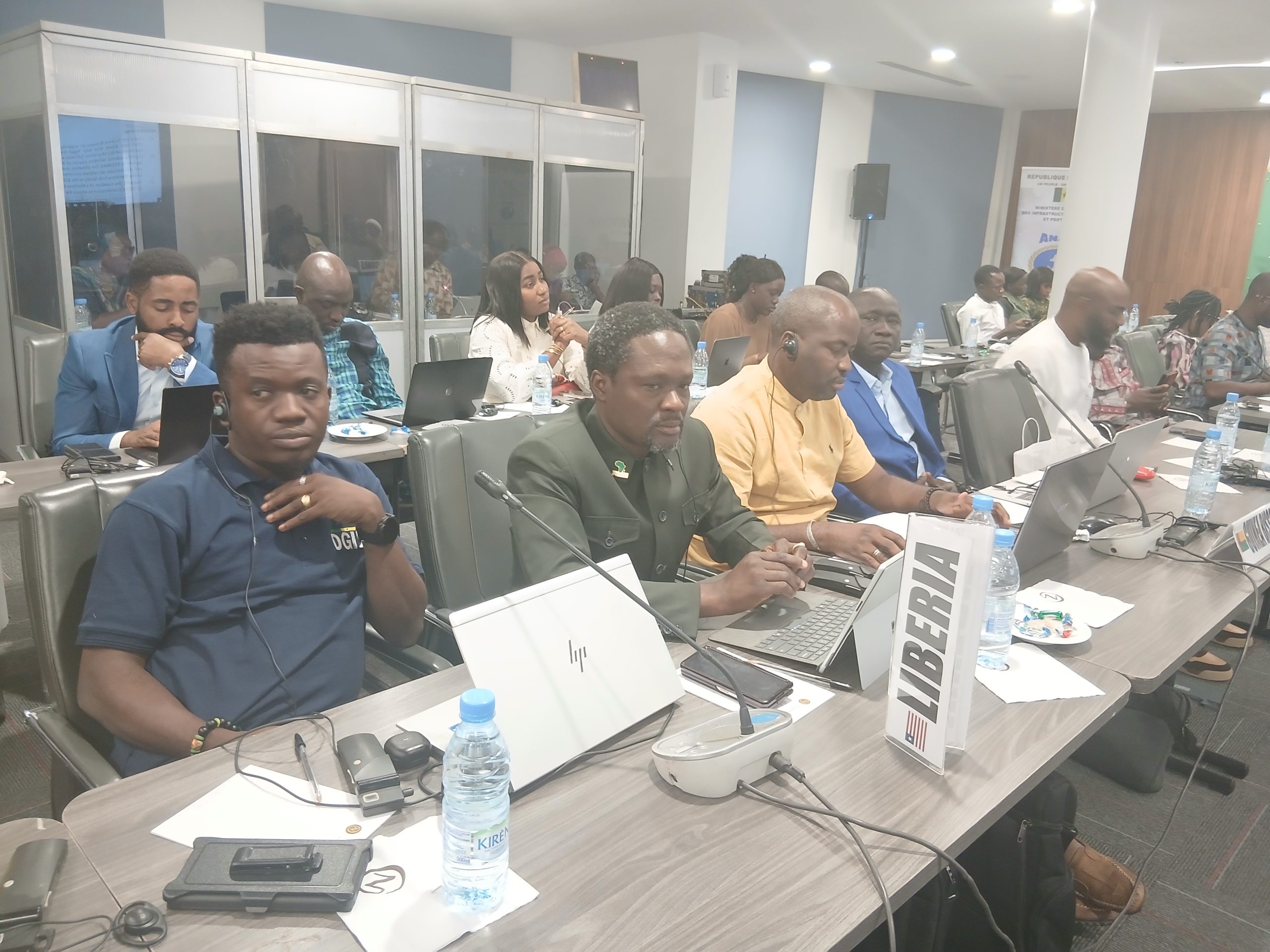Relevant resolutions aimed at speeding up completion of the Praia-Dakar maritime link project
03 Jul, 2025The Commission of the Economic Community of West African States (ECOWAS) must speed up the preparation and implementation of a regional cobotting scheme for the implementation of the Praia-Dakar maritime link project and other links in West Africa. This is one of the recommendations of the workshop on the evaluation and validation of the various financial options for the implementation of the Praia-Dakar maritime link, which ended on Wednesday 2nd of July 2025 in Dakar, Senegal.
The ECOWAS Commission is requested to put in place the operational, infrastructural and technical preconditions to create the necessary environment for the launch and sustainability of the Praia-Dakar maritime services and other regional maritime links. It is also asked to ensure that the study on the Praia-Dakar maritime link is completed on schedule, and to follow up with the consultants, with a view to following up the resolutions resulting from this meeting.
The Commission is also required to initiate discussions and processes for the creation of a regional register of ships flying the West African flag, with harmonised operational guidelines and procedures for the smooth functioning of maritime operators. Ensuring the participation of regional investors and citizens in the provision of maritime services, through an appropriate procurement mechanism with provisions for regional preference, is another resolution addressed to the Commission.
The participants also urged ECOWAS to draw up management procedures for the Praia-Dakar maritime link, considering the creation of the Corridor Management Authority provided for in the project Treaty. As far as ECOWAS member states are concerned, Liberia and Guinea-Bissau are urged to complete as quickly as possible the ratification of the Corridor Treaty, which constitutes the main legal basis for the creation, financing and operation of maritime services.
The Member States of the regional organisation will have to support the creation of a working group of maritime experts and collaborate actively with the ECOWAS Commission in order to ensure that the group functions properly. They will also be asked to provide information on examples of maritime transport services in the region, to assist the consultants in their review of the final report to be submitted.
The participants have instructed the consultants to consider the comments and observations of the Member States, ECOWAS and development partners and to submit their final reports on time. They should also ensure that cost estimates are optimised to present a favourable economic and financial rate of return. This will include a review of vessel costs, residual value, existing potential and available financial inputs in the region.
The consultants will also have to revise the economic analysis to take account of specific local market conditions to improve the viability of the projects, and provide clear details of port infrastructure requirements for Member States. In order to save time, participants urged consultants to propose an innovative tendering process that differs from the usual traditional one.
The implementation of these various recommendations should facilitate and guide the rapid finalisation of the study and the launch of the implementation of the Praia-Dakar maritime link project. At the end of the proceedings, the Corridor Member States and participants validated the Phase 3 reports on the financial and implementation strategy for the creation of the Praia-Dakar maritime transport link.
Speaking at the close of the meeting, Mamoudou Alassane Camara, Chairman of the Committee of Experts from the Member States of the Praia-Dakar maritime link, welcomed the quality of the recommendations made by the participants. The Director General of the Senegalese Maritime Affairs Agency, Becaye Diop, called for the rapid completion of the Praia-Dakar maritime link.
This maritime link is a component of the Praia-Dakar-Abidjan multimodal transport corridor project. Considered strategic, it should be the subject of a specific management model proposal. The implementation of this maritime link will mark an important stage in regional integration in the ECOWAS region.
As far as the Praia-Dakar-Abidjan multimodal transport corridor project is concerned, it represents an essential element in the wider strategy of ECOWAS to facilitate the free movement of people and goods within the Community area, strengthen trade cooperation, promote economic development and stimulate regional trade.



















